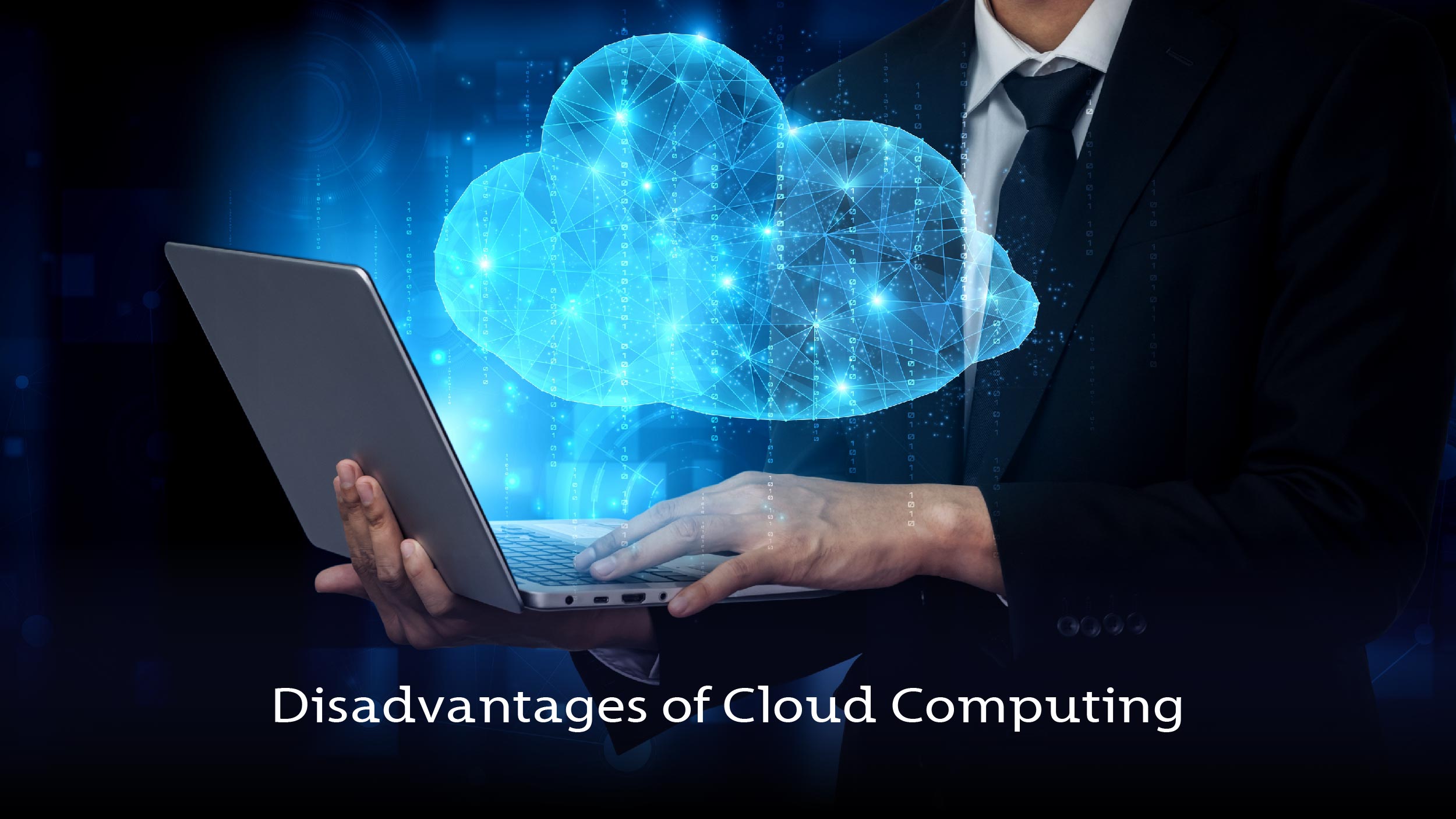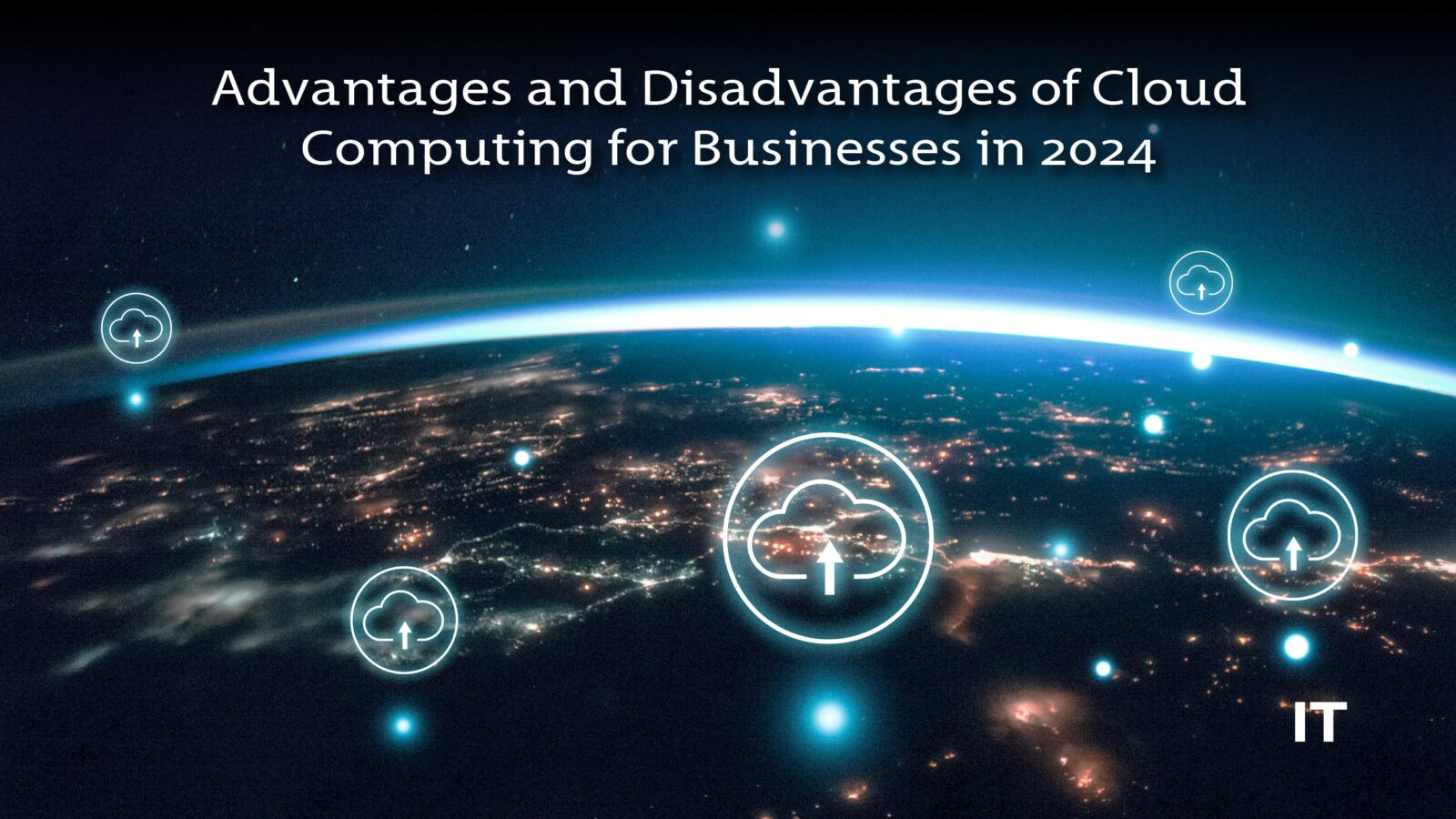Cloud computing is the process of effectively accessing, storing, and managing large amounts of data. In 2023, the advantages and disadvantages of cloud computing still hold paramount importance. Even though the concept of cloud computing may be abstract, the offerings of this service are concrete.
Cloud computing provides pay-as-you-go services by offering cloud-hosted services over the internet. According to Exploding Topics’ statistics for cloud computing in 2023, it was observed that the cloud applications market crossed the valuation of over $150 billion with nearly 60% of the world’s corporate data stored in the cloud currently.
To explain cloud computing, let’s take the example of a very popular cloud provider, i.e., Google Cloud. Google cloud platform is an effective service provider of cloud computing. It assists in computing and storing large databases while also providing in-depth data analytics. Even though the advantages and disadvantages of the Google cloud platform balance each other out, it still isn’t a failsafe. However, Google is constantly trying to improve its services and combat the cons of the same.
But the question still remains. What are the advantages and disadvantages of cloud computing, a service that has emerged as extremely relevant and prominent for managing data in today’s business world? Let’s peek into the world of cloud computing to find out!
Four Primary Cloud Environments Existing in the Digital World
 Before diving into the advantages and disadvantages of cloud computing in businesses, let’s take a brief peek into the four primary cloud environments that exist in the digital world.
Before diving into the advantages and disadvantages of cloud computing in businesses, let’s take a brief peek into the four primary cloud environments that exist in the digital world.
Public Cloud
The public cloud infrastructure is a structure providing the general public with access to use the cloud for business, academic, or governmental purposes.
Private Cloud
The private cloud infrastructure is utilized by private or single organizations comprising multiple consumers. It is usually owned, managed, and operated by the organization or a third party existing on or off premises.
Hybrid Cloud
The hybrid cloud infrastructure comprises two or more distinct cloud infrastructures that enable data and application portability.
Multi-cloud
A multi-cloud environment is a structure combining services from more than one cloud vendor. According to Exploding Topics, a whopping 90% of large-sized companies have adopted a multi-cloud infrastructure.
Also Read: What is UCaaS and Why Does it Matter?
Advantages of Cloud Computing to Help Businesses Grow
Cloud computing is emerging as a technology being adopted by various businesses across the globe. Cloud computing assists on-premise technologies for efficiently managing data. Here are some of the many advantages cloud computing offers its consumers:
Reducing Cost and Optimizing Resources
Steadily evolving as a prominent pay-as-you-go service, cloud computing offers a plethora of benefits such as reducing cost and optimizing resource utilization. Especially catering to businesses that demand investment in either Software as a Service (SaaS), Platform as a Service (PaaS), or Infrastructure as a Service (IaaS).
For instance, cloud computing reduces costs and optimizes resources by eliminating unnecessary hardware. Businesses can obtain cloud services to reduce office space and assist in maximizing space.
Data Backup and Restoration
Businesses are adopting services on the cloud as the data once stored there, remains on the server for access in the future. It is convenient to restore data if any data loss is incurred on the server. It offers data backup and disaster recovery features in the event of an emergency including malicious threats or hardware malfunction.
For instance, the cloud develops periodic copies of data and applications to a secondary device which is beneficial at the time of data recovery.
Accessibility and Collaboration
Employees of a company require access to and collaboration of business data. May it be for working on-site or in remote locations, employees can easily access the company’s data with an internet connection. This can contribute to the growth of opportunities for businesses even in remote locations.
For instance, according to a recent market survey by Statista, nearly 34.7 million Americans have the option to work remotely and require ease of accessing data while collaborating with other team members.
Flexibility, Scalability and Reliability
Cloud computing services provide businesses flexibility and scalability through its “pay-as-you-go” model so that they only spend what is actually necessary. As businesses evolve, cloud computing services can be accommodated accordingly. It is a reliable cloud hosting service that can be updated as and when required.
For instance, the advantages of cloud computing in the healthcare sector assist in the effective management of Electronic Health Records (EHRs) that need to be prepared and preserved by healthcare institutions. It contains sensitive information about the healthcare facility and also a plethora of patient data that needs to be kept secure for the diagnosis and treatment of patients.
Disadvantages of Cloud Computing Restricting Business Growth
 While speaking of the advantages and disadvantages of cloud computing in businesses, there are a few concerns that pop up on the cloud.
While speaking of the advantages and disadvantages of cloud computing in businesses, there are a few concerns that pop up on the cloud.
Data Control and Vendor Lock-In
Vendor-lock-in is considered the biggest disadvantage of cloud computing services as there is limited flexibility in terms of transferring data from one vendor to another. Furthermore, there is a lack of control of data which is emerging as one of the issues in cloud computing.
For instance, if an organization wishes to switch to a different vendor or service provider, it involves switching the platform as well. Since the data is not compatible with different platforms, there is a lack of control over the data stored on the cloud.
Security Concerns
There is a risk of security breaches when large amounts of data are stored on the cloud. Furthermore, there is also a concern regarding the sharing of sensitive information with third-party cloud providers. This information may be accessed by hackers which can aggravate the problem.
For instance, when an organization ties up with a cloud provider, it leads to sharing information bound by trust. This can, however, be misused. The advantages and disadvantages of cloud security can be debated as it does not offer a complete solution to the security of data.
Internet Connectivity and Reduced Bandwidth
Despite the various advantages of cloud computing, there is one integral requirement that cannot be ignored. This is the problem of internet connectivity and reduced bandwidth.
For instance, if you are not connected to the internet or are facing bandwidth issues, chances are that you will not be able to access data from the cloud. Unfortunately, it does not have an alternative means of accessing data apart from being connected to the internet, making it a big con.
Technical Adversities
As businesses dive deep into the world of cloud computing, the concern of increased downtime due to power outages or sporadic internet connection of the cloud provider is likely to hinder the access of data.
For instance, a cloud service provider is likely to face an outage or technical difficulty even while being connected to the internet. These technical issues can make it difficult to access and update data, leading to a possibility of data loss.
Is it Time to Float with the Cloud?
As the cloud rains advantages and drizzles disadvantages, it is undeniable that cloud computing is emerging as the fastest-growing part of network-based computing. Despite the fact that the advantages and disadvantages of cloud computing in the business world keep on getting updated as per the dynamic market, it is apparent that the future of cloud computing will be around for a long time.
Additionally, with the rising advantages of cloud computing in healthcare, patients can receive better healthcare through collaboration and interoperability. By leveraging cloud systems for the medical industry, we can help millions worldwide receive enhanced healthcare facilities and improve their quality of life.
As we weigh the advantages and disadvantages of cloud computing in businesses, it is integral to optimize the pros and minimize the cons of the service. With increased advancements in technology, better cloud security will surely assist in shaping the growth of businesses in the years to come.


































